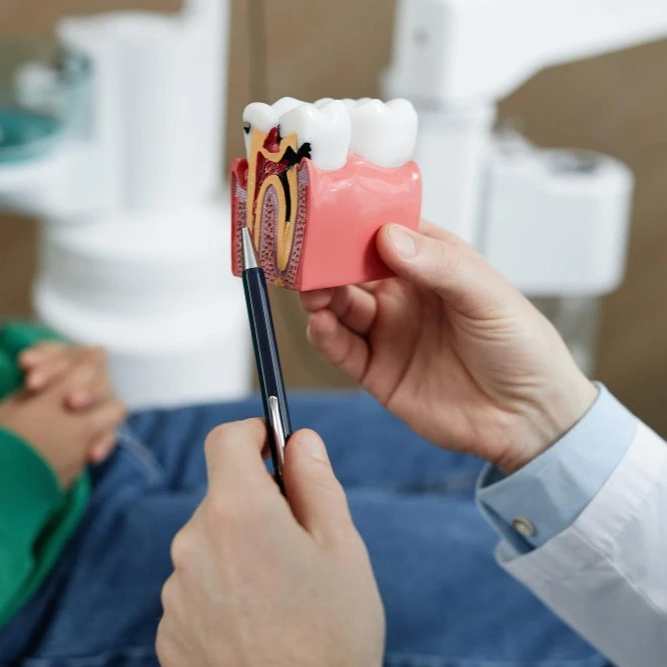Hey! We Are Dentist
Endodontics
Welcome to the realm of Endodontics at Marmion Dental Care, where we specialize in preserving the vitality of your natural teeth through advanced and compassionate care. Endodontics is a branch of dentistry focused on the diagnosis and treatment of issues affecting the dental pulp, located at the core of the tooth. Our skilled and experienced endodontists utilize cutting-edge techniques to save teeth that might otherwise require extraction.

Root Canal Treatment
The desired outcome of Root Canal Therapy is to save a tooth that has been damaged by decay, periodontal disease or trauma, and is beyond repair by means of a simple restoration/filling. A toothache is often resolved immediately from Stage 1 Root Therapy. The alternative to Root Therapy is an extraction.
It is always advisable, where possible, to save natural teeth. Extracting a tooth may cause issues with biting, chewing and aesthetics. For example, teeth adjacent to the space left when a tooth is extracted may drift and cause food packing areas which are more susceptible to periodontal disease and decay.
Root Canal Treatment is successful in most cases. If you follow good oral hygiene practice at home and return for regular check up appointments at your dentist, it will last you several years and possibly a lot longer. It is important to follow the treatment plan set out by your dentist, in terms of each stage and when that stage should be completed for greatest success.
If the prognosis of the Root Canal Therapy is poor, the treatment will not be done and extraction will be the only option. Tooth replacement options are available if you do lose the tooth; denture, bridge or implant. The alternative options will be discussed relative to what is suitable to you.
Occassionally, a patient may be referred to an Endodontist (specialist) for commencement or completion of the Root Canal Therapy.
Root canal Therapy may be required after:
- Extensive dental work on a single tooth
- Recurrent decay under a filling, crown or veneer
- Deep decay
- Trauma
- Periodontal/Gum disease
- Fracture
- Tooth wear
Root Canal Therapy normally takes several visits:
- Removal of the nerve and blood supply of the tooth and placement of an antibiotic paste and temporary filling (done with local anaesthetic)
- Removal of the remaining remnants of the nerve and preparation of the inside of the tooth for filling, placement antibiotic paste and temporary filling (done with local anaesthetic)
- Final preparation and filling of the canals (done with or without local anaesthetic)
- Filling over successfully completed root canal (done with or without local anaesthetic)
- Possible Crown Therapy
- Sometimes, a tooth may require a subsequent visit called a “redress” where another amount of antibiotics is placed to combat more severe infection.
